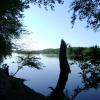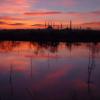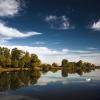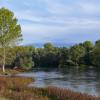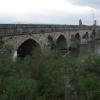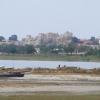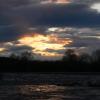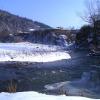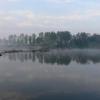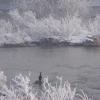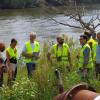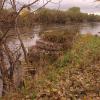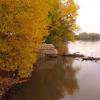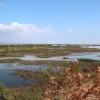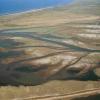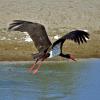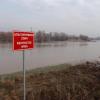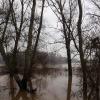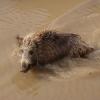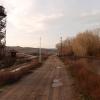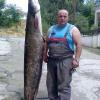The Evros River
The Evros River as a “Frontier Park” and “International Park” in Thrace
Text by Stam Zogaris
The Evros (Maritsa in Bulgarian, Meric in Turkish) is a watery “iron-curtain” separating Greece and Turkey for nearly 200 KMs along one of the most fortified borders Europe. The border zone has been a no-man’s land, long considered a dangerous off-limits zone, with military outposts, extensive mine-fields; it is a treacherous barrier for waves of “illegal migrants” crossing from Asia into Europe.
Members of the Institute of Inland waters, Hellenic Center for Marine Research (HCMR) have been investigating the Evros river and its tributaries during the last few years –interested in its remarkable flooding and water quality problems and in biodiversity conservation. The part of the river’s basin in Greek territory is extraordinary in being extremely rich in wildlife and varied habitats.Already, a preliminary survey showed that the river hosts 53 species of fish – the largest number by far, in any Greek river. A recent report by HCMR shows that the river still holds remarkable riparian zones and floodplain woodlands. Research commissioned by NGOs in the past (including WWF-Greece, Hellenic Ornithological Society, and other organizations) has documented the remarkable ornithological value of the entire river valley on the Greek-Turkish border. The Evros Delta has long been considered one of the Mediterranean’s most important flyway staging and wintering areas for birds as it is strategically located on the mid-section of the Thracian land-bridge only 70 km away from the Asiatic side of the Dardanelles. This Delta, and the entire lower river valley is a biological crossroads.
Already, there are two world-class National Parks on the Greek side of the river-border, Evros Delta National Park (with its well-run management body and visitor center at Loutra Traianoupolis) and Dadia-Lefkimi-Soufli Forest National Park, in the surroundings of Dadia Village about 30 kilometers upstream from the Evros river’s estuary. Other large Natura 2000 protected areas also exist along the Greek-Turkish border. In Turkey the spectacular Gala Lake National Park has been developed at the Turkish side of the Delta near the port city of Enez.
A need for a protected river corridor…
After Bulgaria entered the EU in 2007 there was a remarkable transformation on the river border between Greece and Bulgaria: border- military installations were dismantled, for the first time in many decades the river was peaceful and quiet on either side. Could this ever happen on the long stretch between Greece and Turkey? And what about the destructive flooding – artificially enhanced by several large Bulgarian hydroelectric dams- how can the floods be managed without destroying riparian farmland or the river’s meanders, wetlands and riparian woods? And how can we control the pollution that is dumped by neighboring countries who don’t care where the pollution ends-up? How can we control the greedy over-exploitation of surface waters by intensive agriculture – the river was once navigable even in summer – today it is a shadow of its former might. And what about biodiversity- the river once produced caviar-bearing Sturgeon- are there any left? What about the migratory fish- this is one of the few large lowland river stretches in southern Europe without a dam….Who will speak for the fish, the amphibians, dragonflies, water bird colonies, rare woodlands, river islands, and riparian wetlands?
Frontier Park and International Park
The Evros if notorious for its problems, mismanagement of water resources, damaging floods, international tension over human migration movements. On the Greek side of the river, researchers, environmental NGOs and concerned citizens are interested in the integrated conservation management of this unique river corridor. The idea of a Frontier Park: a long, thin protected-area along the Greek side of river has been discussed. Others have recommended something grander, an International Park that would utilize the narrow river corridor to unite three National Parks and other protected areas adjacent to the river in Greece, Turkey and Bulgaria. Unfortunately, this is not a straightforward task because of military tension on the border, the “psychological” barriers, and many practical difficulties. The un-met need to manage and protect the entire river and its biodiversity remain a important problem - and the EU Water Framework Directive demands cooperation for water management. Even base-line biodiversity surveys and monitoring has yet to be initiated at the river basin scale. Is uniting our interests for conservation on one river system possible? We believe action is needed in this direction immediately!
Stam Zogaris

